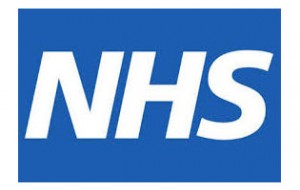Every purchase of one of these Diabetes Awareness Insulated Travel Cup helps fund diabetes research – you can get yours here.
A new preliminary study has found that formula diets help people with insulin-treated diabetes to reduce their body weight and dose of insulin.
A randomised, controlled trial by Imperial College London, which will be presented at Diabetes UK Conference in Glasgow on the 2nd of March, studied the impact of a low energy formula diet on weight loss in obese patients with long-standing type 2 diabetes on insulin treatment.
The study split the insulin-treated patients into two groups, with half taking the formula low energy diet, the Cambridge Weight Plan, and half following the ‘gold-standard’ clinical NHS care and 600 calorie-deficit diet. Both groups received advice to help change their behaviour and physical activity advice.
The patients completing the low energy formula diet saw greater reductions in their blood sugar, body fat mass levels, cut back their insulin dosage and shed nearly 10 kilograms of weight over 12 weeks, whilst those in the control group following the NHS guidelines lost only an average of 2.2 kilograms without as big an impact on insulin.
This is the first evidence from the UK that a group of people with insulin-treated diabetes can improve their condition by losing weight and lowering insulin use through such a diet.
Soaring rates of obesity-linked diabetes have led to a huge rise in UK insulin users since 1991, an earlier study from Cardiff University’s study of patient prescriptions reported in the Journal of Diabetes, Obesity and Metabolism in 2014. It said the number of individuals with type 2 diabetes injecting insulin soared seven-fold from 37,000 in 1991 to 277,400 in 2010.
As a result there are more type 2 individuals on insulin now than type 1 diabetics with which insulin treatment is more commonly associated.
So should the NHS be reviewing their gold-standard advice when it comes to diabetes care?
To find out more we interviewed Adrian Brown of Imperial College London.
Adrian Brown – My name is Adrian Brown and I am an investigator on the study and a specialist dietician in weight management.
Patient Talk – Can you explain what type 2 diabetes is?
Adrian Brown – Type 2 Diabetes is a condition associated with high blood sugars, approximately 4 million people in the UK currently have Diabetes and worldwide it has 358 million people and what it is is possibly by 2025 it’s going to rise to about 5 million. What we do know about type 2 Diabetes is in simple terms it’s when your body either doesn’t produce enough insulin to cope with the sugar in your blood or you have something called insulin resistance where you resistant to the insulin that you do produce and this results in you having higher than normal blood sugars, recently it’s also been linked in with recent evidence to suggest actually the fat it accumulates within an organ called your pancreas and an organ called your liver, which are organs that help to maintain you blood sugar levels in your body are actually linked with the development of Diabetes. Type 2 Diabetes is also associated with obesity so what we do know is that it is also associated with family history and women that have Diabetes in pregnancy, approximately 85% of patients with type 2 Diabetes are either overweight or obese so a huge percentage of patients and if you look between type 1 and type 2 around 90% of patients within that 4 million are actually type 2 within the UK.
Patient Talk– Ok and why is diet important to people with Diabetes?
Adrian Brown – Diet is key, it’s very important for patients as previously mentioned to the links in patients being overweight obese and how diet significantly links in with a patient or a person increasing their body weight. Furthermore what we also know is that type 2 Diabetes is also linked in with conditions like heart disease and high blood pressure and diet has been linked in with the development of those as well so it’s very important that patients and people with type 2 Diabetes look at their dietary habits, furthermore what we also know is that carbohydrates specifically affects their blood sugars and as I said before blood sugars are part of type 2 Diabetes where people are able to control their blood sugars so it’s important that people understand where the carbohydrates is within their diet and whether they can patiently change that to give them better blood sugar control, In addition to that what we also know is that nutritional status within patients that are overweight is also very key, a lot pf patients when you look at the literature who are obsess or nutritional deficient in a variety of different vitamin and minerals so it’s important that diet is well balanced and when we actually look at things actually using a low calorie formula based diet is actually a good option because there is evidence to suggest that actually it shows within patients with arthritis there is improvement is vitamin D and I believe iron as well.
Patient Talk – Ok and what is the current NHS plan and why is it failing?
Adrian Brown – So the NHS has a variety of different guidance documents out there on the treatment management of type 2 Diabetes, they look at setting out guidelines particularly around HBA1C, blood pressure readings and all sorts low fat reading levels for the nation. What is also looks at is it sets out guidance related to the type of dietary management and also physical activity which is key to help people with type 2 Diabetes particularly around prevention but also it links in with medication advice as well so when to start medications, I think some of the key elements are around the ideas of patient education specifically, managing those patients and complications within the UK and also in England and also making sure that we look at prevention as well is a key.
Patient Talk – Ok and can you explain how this study was conducted?
Adrian Brown – Of course, so the study itself is looking at patients with long standing type 2 Diabetes that are currently treated on insulin so these patients have had Diabetes for a number of years and has progressed through initially diet and physical activity advice then onto oral medications and finally usually between 4 and 10 years they end up on insulin so what we are doing at Imperial college London is we are randomising to putting patients randomly into one group or another and the two groups that we are comparing is we are looking at gold standard NHS care, so what I mean by that is we are giving patients dietary advice to help them lose weight and we are doing that by using a 600 calorie deficit diet that is calculated by figuring out someone’s basil metabolic rate using a special calculation and then what we do is we take off 500 – 600 calories to allow them to lose weight and we give them dietary advice and portion size advice for that. In addition to that in both groups we give them behaviour change so we look at a person’s relationship with food so we give them advice related to self-monitoring to goal setting and those types of things, in addition to that we talk about emotional eating and the behavioural side to that and also slip ups and step backs as we appreciate it isn’t just about weight loss it’s also about weight maintenance. So just in this study in the 12 weeks which start to give people those skills to be able to do that, in addition to that we give them physical activity advice for general health which is around 150 of moderate activity a week and what we are doing is comparing this gold standard NHS care and we are comparing that to using a low energy diet for a period of 12 weeks and this low energy diet is a soul source formula based diet, the one which we are using is Cambridge 0800, and this gives patients between 808 to about 840 calories every day and they have soups and shakes thought that whole time of the 12 weeks and what we are doing is comparing whether using this low calorie diet compared to traditional dietary care produces better weight loss, improvement of blood sugar control and reduction of insulin.
Patient Talk – So it’s kind of everything you are after then?
Adrian Brown – In a way what we are looking for is we are looking to see how or if there are other ways other than medication or bariatric surgery to see if we can help these patients lose weight, there is evidence out there within patients with early onset diabetes, so on oral medications that using a very low energy diet can help to put a patient in a way remission of the conditions that actually dictate they have diabetes, so they significantly improve the bloody sugar control and also the sensitivity of the insulin in the body so we are looking to see whether this can happen in patients with long standing type 2 diabetes currently treated on insulin as that is a question that we would like to know as there is an increasing amount of patients that are currently being treated on insulin for type 2 diabetes , approximately about 370000 to 2010 about 270000 so that is a huge increase in the amount of patients that are currently treated on insulin and if we can reduce some of the burden that these patients have we can also reduce the patient burden but also the pressure on the NHS from a cost point of view as insulin is a very expensive medication.
Patient Talk – And is there any other conditions that this would also be useful for?
Adrian Brown – There is evidence to suggest that the use of very low calorie diets can help with symptoms of arthritis, psoriasis and also obstructive sleep apnea, however, if you want to speak to the right person for that I would probably recommend you speak to Dr Tony Leeds’s who has all the full papers for that but there is some good evidence to start to suggest that those conditions can be improved but what we do know is that 1 year after the use of a low energy diet that continuing to use 1 product a day for the next 4 years has actually been shown to maintain the 10% weight lose that you have achieved in the first year up to 4 years which is very impressive, it will be interesting to see how our study continues over the next 12 months to see if we can maintain the pulmonary results that we have got here.
Patient Talk – And can you tell us the results that came from doing this study?
Adrian Brown – The pulmonary results from the study showed that there was a significantly greater weight loss in the low energy diet group compared to the gold standard NHS care, the low energy group lost around 10kg in weight whereas the gold standard NHS care group lost around 2.2kg so that’s a significant difference between the two over the 12 week period. Both groups reduced their insulin significantly, to put it into context, there was reduction of around 40 units for the patient on a low energy diet and for the group the was on the good clinical care what they did was lost about 34 units so that was actually a representation of around 75% reduction in the low energy diet group and about 46% in the gold standard NHS care group so it actually shows that with the right balance and the right advice of dietary and behavioural and physical activity advice that actually we can get significant improvements with patients with type 2 diabetes currently treated on insulin. In addition to that we got 4 patients completely off insulin with a low energy diet group compared to none in the gold standard NHS care and we actually saw a significant reduction in blood sugar control so that’s something called HPA1C so that is your average blood sugar and what we say we saw a reduction of around 1% in the low energy diet group and about 0.6% in the good clinical care, one very very interesting element that actually we did find was there is talk about the loss of lean tissue or muscle mass particularly when using low energy diets and actually although the amount of lean tissue was significantly different between the two groups which meant that the lower energy diet lost more weight in terms of muscle mass compared to the good clinical care, when it was converted into an actual amount compared to the weight loss lost what that represented was that only around 30% of the total weight was muscle mass compared to around 38% on the good clinical care so actually the traditional diet actually made people lose more lean tissue which is a good outcome related to low energy diet and something quite interesting that I think that we need to look in further for before we can make definitive answers related to that.
Patient Talk – And where can people go for more information?
Adrian Brown – For diabetes what I recommend people do is that they go to a www.diabetes.org.uk and if people are interested about more information about the formula diet used within the pulmonary study I would recommend they go to www.cambridgeweightplan.com .




